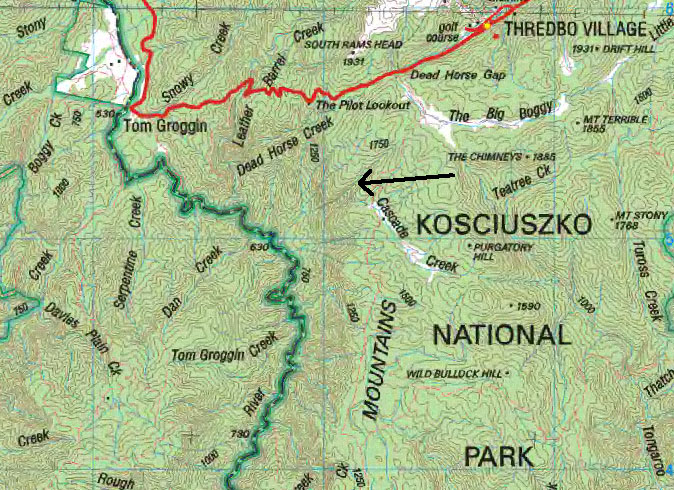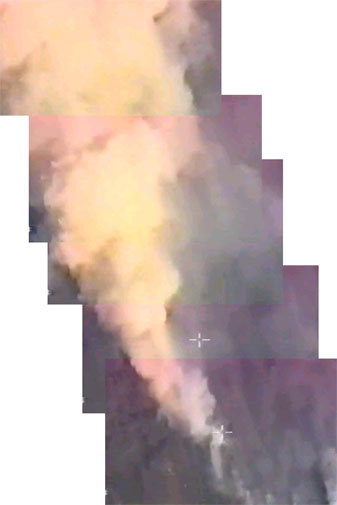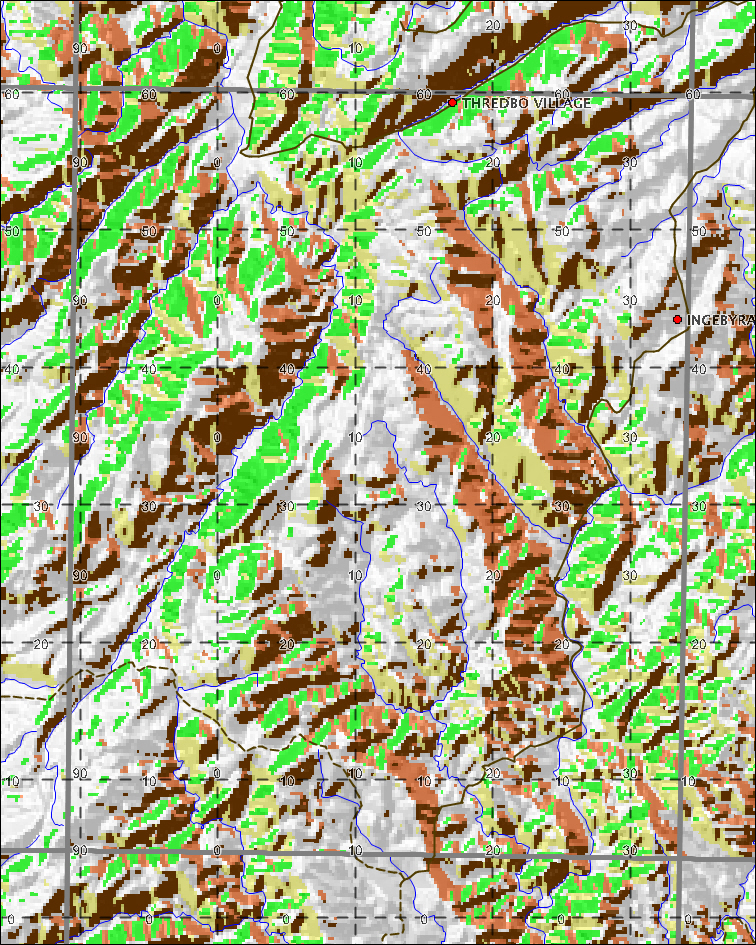| Map of the area, with the arrow showing the base of the main plume, and the direction of approach of the aircraft. (Data: Geoscience Australia)
| 
|
This mosaic is taken from frames if the FLIR video of the event. Visible in the background is the smoke-filled Indi Valley, with the unburnt alpine plateau in the foreground.
Note that as expected this fire flank, on a major reduction in slope, is not of extreme intensity. However, at the nickpoint of Cascade Creek (GR 110 520, in the centre of the image) there is a hillside able to produce fire channelling under that day's weather.
| 
Click for full size.
|
This second mosaic is also taken from frames if the FLIR video of the event, and is looking almost directly down onto the main plume. Visible on the right is the smoke-filled Indi Valley, with the unburnt alpine plateau to the left.
Note the rapid expansion of the plume as it rises - indicating a hot fire - and its diagnostic colour.
| 
Click for full size.
|
| This is the fire channelling model output for that area. (See GR 110 520)
| 
|



